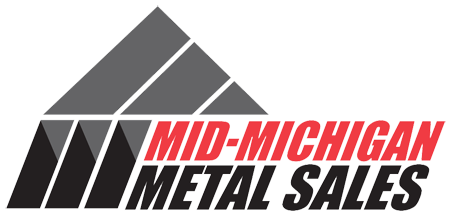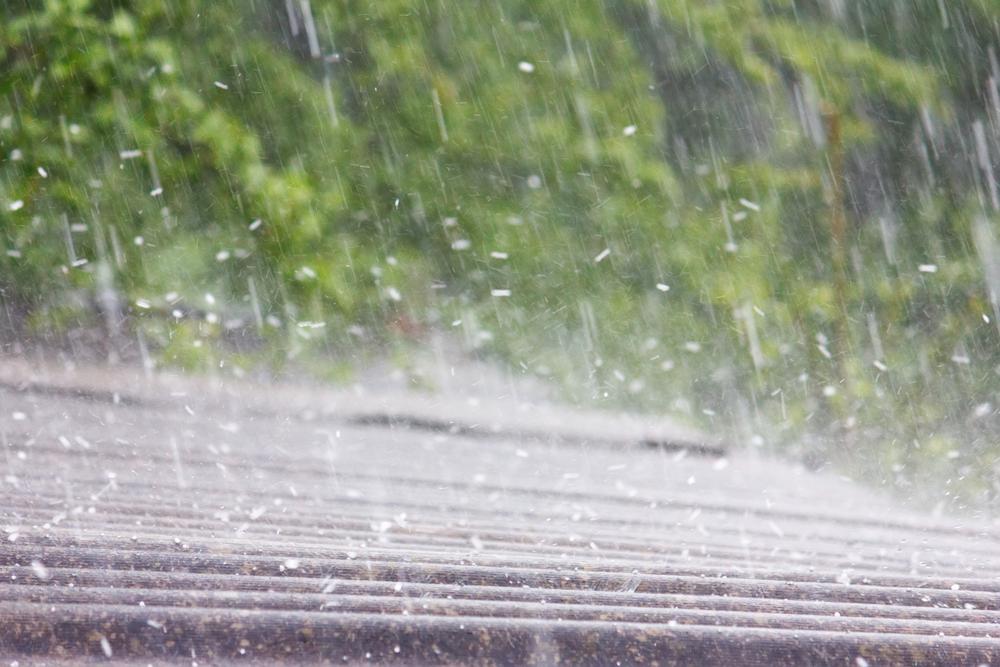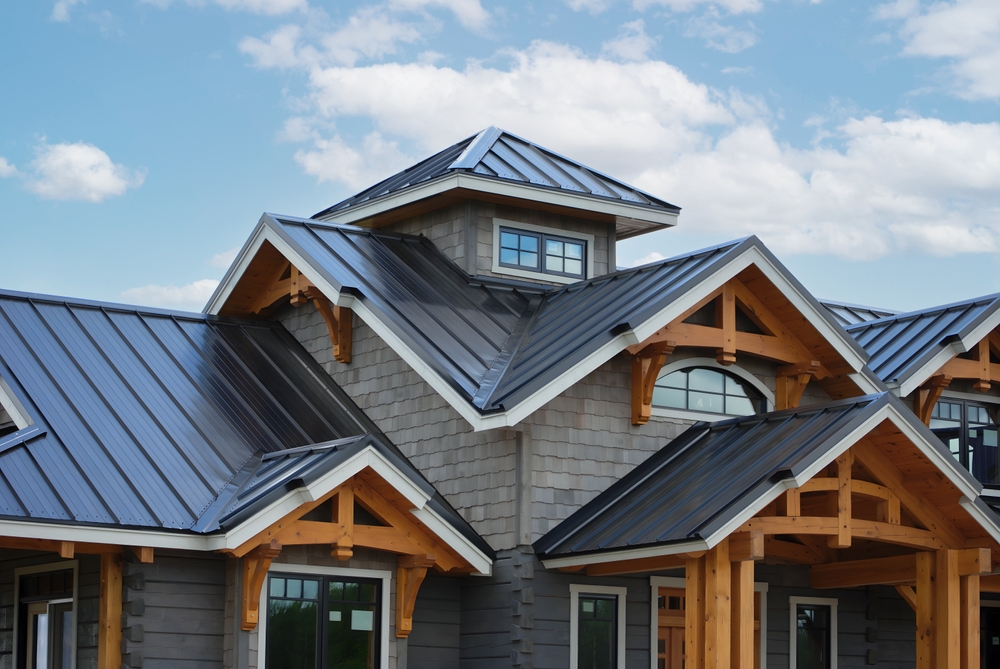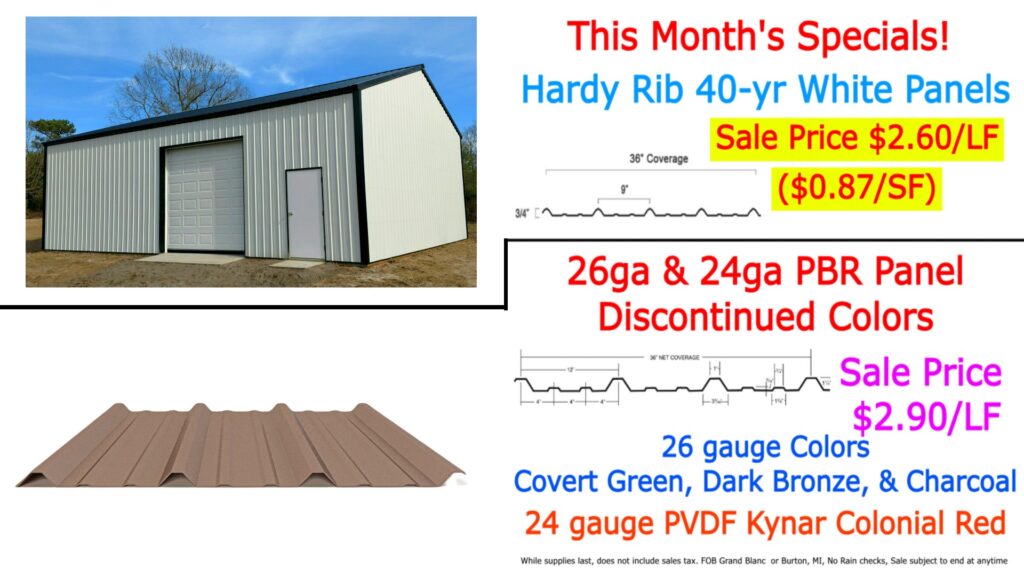There are a few common topics that often arise when discussing the use of metal materials in the elements, and rust is a great example. A frequent question in this realm: Do metal roofs rust?
At Mid Michigan Metal Sales, we’re here to provide clients around Michigan with a huge range of metal roofing panels, metal siding options and other metal roofing products to meet all your needs. Rust and corrosion resistance are common topics we discuss with our clients – and did you actually know that these terms refer to different things? Here’s a primer on how this works, the rust resistance properties of various specific metals, and which materials are typically used for the most rust-resistant metal roofing options available.
Rust and Corrosion Aren’t the Same
Despite the fact that many people use these terms interchangeably, rust and corrosion are actually not the same thing at all. Rather, they differ in some important ways.
Rust refers to a chemical reaction that occurs when iron or steel is exposed to oxygen and moisture for an extended period of time. This reaction creates iron oxide, which gives metal a reddish-brown color and leads to the characteristic flaky texture we associate with rust.
Corrosion, on the other hand, is a general term that refers to the aging process and deterioration of any material, including metals. While rust is a specific type of corrosion that only occurs in iron and steel, other types of corrosion can occur in different metals as well. This can include galvanic corrosion, which happens when two dissimilar metals are in contact with each other and an electrolytic reaction causes one metal to corrode more quickly than the other.
The Rust Resistance Properties of Different Metals
When it comes to metal roofing materials, some are more susceptible to rust than others. Here’s a breakdown of the rust resistance properties of common metals used for roofing:
- Steel: Steel is actually an iron alloy, one that is highly susceptible to rust due to its high iron content. To combat this, steel roofing panels are often coated with zinc or other protective layers to prevent the metal from coming into contact with moisture and oxygen.
- Galvanized steel: On the other hand, galvanized steel has already been treated with a zinc coating to protect it from rust. This is often used for metal roofing and siding, as the protective layer of zinc can last for many years.
- Galvalume steel: Another steel option, galvalume is coated with a combination of aluminum and zinc, providing even more protection against rust.
- Aluminum: Unlike steel, aluminum does not rust. Instead, it forms a thin layer of aluminum oxide when exposed to oxygen, which acts as a protective barrier for the metal underneath.
- Copper: Similar to aluminum, copper also forms a protective layer (copper carbonate) when exposed to oxygen. This makes it highly resistant to corrosion and rust.
- Zinc: Zinc is even more novel than copper and aluminum – not only does it develop a protective layer against rust, it also is self-healing and can repair any scratches or damage to its surface.
The Most Rust-Resistant Metal Roofing Options
Based on the rust resistance properties of different metals, some metal roofing materials are better at preventing rust than others. Here are a few of the most rust-resistant options:
- Aluminum: Due to its corrosion-resistant properties, aluminum is often the go-to choice for coastal regions or areas with high levels of moisture in the air.
- Copper: As mentioned earlier, copper forms a protective layer as it ages and is highly resistant to rust. It also has an aesthetically pleasing patina that develops over time.
- Zinc: Zinc is both self-healing and highly resistant to corrosion, making it a popular choice for long-lasting metal roofing.
- Galvanized or Galvalume steel: Thanks to their zinc coatings, these types of steel are able to resist rust for many years.
These materials will often be added or combined with other protective layers to further increase their rust resistance. For example, some metal roofing panels come with a durable paint finish that adds an extra layer of protection against moisture and oxygen.
While all metals are susceptible to corrosion to some degree, certain materials are more resistant to rust than others due to their unique properties and coatings. By understanding the differences between rust and corrosion and the rust resistance properties of different metals, you can make an informed decision when choosing the best material for your metal roofing project.
At Mid Michigan Metal Sales, we pride ourselves on providing high-quality, rust-resistant metal roofing options for our clients in Michigan and beyond. Contact us today to learn more about our products and how we can help you find the perfect metal roofing solution for your needs.



